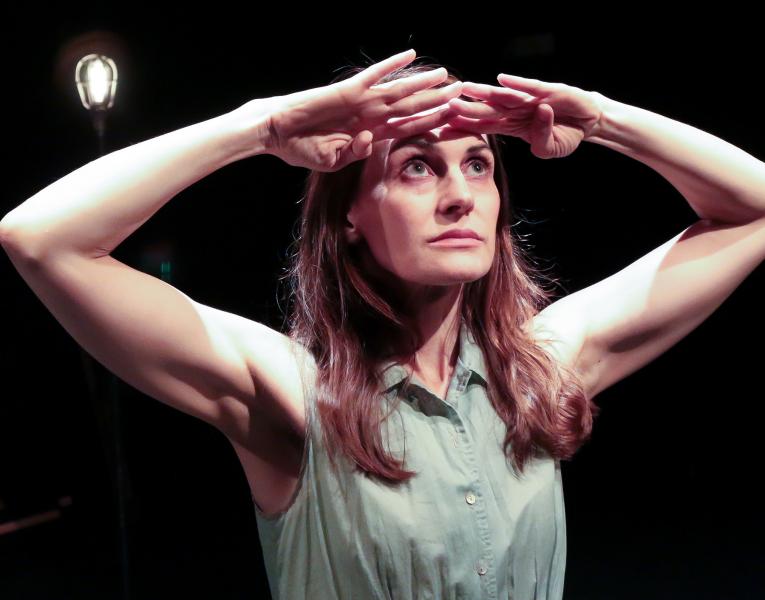Tommy Smith's 'Ghost Light' Is More Poetry Than Play
There are certain classes of theatre that become difficult to put on a stage due to their logistical nature, one of the biggest concerns being length. There was once a time when the “canon” of both popular and historically and artistically relevant plays hardly consisted of anything less than two hours. But recently we’ve seen an increasing popularity of 90 minute plays, one or two performer plays, and other formats that formerly may not have been considered so “conventional”; ten-minute plays are a current favorite in high schools, play festivals, and competitions. But plays in the thirty-minute to hour-long range still remain in an awkward interlude. Playwright Tommy Smith has elegantly dodged this issue by writing a companion piece, “Ghost Light,” intended to follow performances of “American Falls,” premiering at the Echo Theatre Company on September 11.
“Ghost Light” is an abstract, one-woman piece consisting of four separate monologues: “The Fog,” “The Lotus Eaters,” “Madelines,” and “Hexakosioihexekontahexophobia.” All are told from the familiar anecdote structure—a character is telling a story—that can go tremendously well and tremendously wrong. “Ghost Light” manages a bit of both; Smith’s control of language and metaphor is very compelling, and his words have an aesthetic beauty to them, but the piece doesn’t quite succeed as a work of theatre.

This is, in part, due to a lukewarm performance by Deborah Puette, who fails to prove, through performance, the viability of “Ghost Light” as a piece of theatre. While the performance is just a workshop, such an abstract and language-based piece ought to focus on performance as perhaps the most important realization of the text. Puette’s monotonous, soft-spoken delivery gives one the impression they are attending a poetry reading rather than a theatrical performance. Direction by Chris Fields also does little to illustrate the dramatic merit of the work. Painfully simplistic blocking—pacing, kneeling, sitting, etc.—makes it almost impossible for the audience to engage with the story of the text, and as a result the monologues come off as, to quote the Bard, merely “Words, words, words.”
Armed with an actress whose dynamic range can stretch beyond the classic and amateurish “I’m speaking in abstractions” voice that veterans of any sort of theatre education are doubtlessly painfully aware of, and equipped with direction that dares to show the story rather than merely tell it, “Ghost Light” might be a compelling work of drama. It has poignant emotional moments and moments of delightful hilarity, particularly an anecdote in “Madelines” about the trials of living with and without cats. If it does end up accompanying “American Falls” in September, it will be very interesting to see how it might be informed by the themes and issues of that play. Tommy Smith seems to know his piece quite well, insisting that “Ghost Light” is never intended to be performed by itself except in workshops, and if he has indeed created a work of theatre that relies entirely on a prior one, he will have succeeded in a fascinating and noble theatrical experiment that’s certainly worth the time for a little intellectual stimulation.
“Ghost Light” runs through August 27th at the Atwater Village Theatre (3269 Casitas Ave., Atwater Village, CA). Tickets are $10. For more information, visit www.EchoTheaterCompany.com.
Reach Theater and Dance Editor Ryan David McRee here.
For more Theater and Dance coverage, click here.



